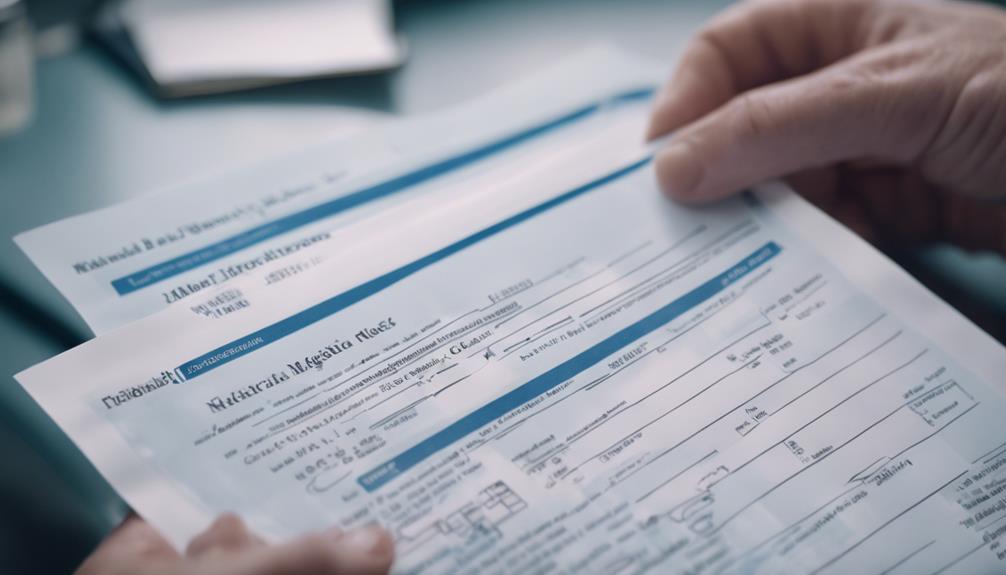To qualify for Emergency Medicaid in New Hampshire, you must meet specific income requirements tailored to your household size. Prepare essential documents like identification, proof of residency, income verification, and existing health insurance details. Dedicate time to fill out the comprehensive application form accurately, ensuring all necessary paperwork is in order. Promptly respond to any requests for additional information during the review process. Mastering these steps will significantly boost your chance of successfully qualifying for Emergency Medicaid in New Hampshire, providing crucial healthcare support when you need it most.
Income Requirements for Emergency Medicaid
To qualify for Emergency Medicaid in New Hampshire, individuals must meet specific income requirements determined by the state's eligibility criteria. These income requirements are set to ensure that the program assists those who truly need it.
In addition to income, asset limits are also considered. Asset limits refer to the maximum value of assets an individual or household can own while still qualifying for Emergency Medicaid. It's crucial to understand that both income and asset limits vary depending on the household size. Larger households may have higher income and asset limits compared to smaller households.
Household size plays a significant role in determining eligibility for Emergency Medicaid. The state takes into account the number of people in a household when assessing income and asset limits. This means that larger households with more dependents may have higher thresholds for qualifying for Emergency Medicaid.
Understanding how household size impacts income and asset limits is essential for individuals seeking assistance through the program.
Documentation Needed for Eligibility
Proper documentation forms a crucial aspect of establishing eligibility for Emergency Medicaid in New Hampshire. Eligibility verification requires specific paperwork to confirm your qualifications for this healthcare assistance.
To begin, you must provide proof of identity, such as a driver's license or passport, to verify who you are. Additionally, you'll need to submit documentation showing your New Hampshire residency, like a utility bill or lease agreement.
Furthermore, required documentation includes proof of income to assess your financial eligibility for Emergency Medicaid. This can involve recent pay stubs, tax returns, or a letter from your employer detailing your earnings. If applicable, you may also need to provide information about any existing health insurance coverage you have.
Ensuring you have all the necessary paperwork ready and organized will expedite the eligibility verification process, helping you access the emergency healthcare support you need in a timely manner.
Application Process for Emergency Medicaid
Navigating the application process for Emergency Medicaid in New Hampshire requires careful attention to detail and timely submission of required documentation. To begin, familiarize yourself with the eligibility criteria to ensure you meet the necessary qualifications.
The application steps typically involve filling out a detailed form provided by the New Hampshire Department of Health and Human Services. This form will require information such as your personal details, income, assets, and medical condition.
Once you have completed the application form, gather all supporting documents that demonstrate your eligibility. These may include proof of income, identification documents, medical records, and any other relevant paperwork. It's crucial to double-check that all required documentation is included to avoid delays in processing your application.
After submitting your application and documents, be prepared to undergo a review process by the Medicaid authorities. They'll assess your information against the eligibility criteria to determine if you qualify for Emergency Medicaid assistance.
Stay proactive during this period by promptly responding to any additional requests for information to expedite the application process.
Conclusion
In conclusion, qualifying for emergency Medicaid in New Hampshire requires meeting specific income requirements, providing necessary documentation, and completing the application process.
By understanding these three key factors and taking the necessary steps, you can ensure you receive the medical coverage you need in times of crisis.
So remember, gather your documents, assess your income, and submit your application promptly to access the emergency Medicaid benefits available to you in New Hampshire.
